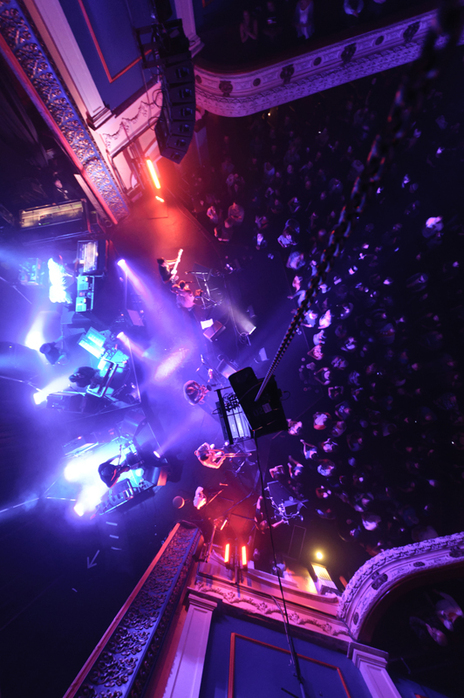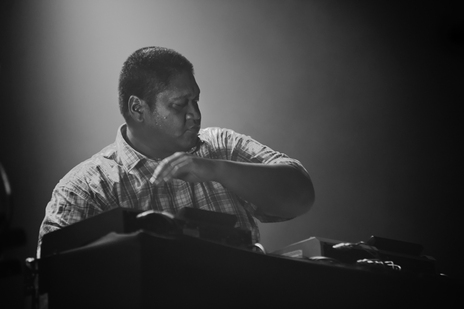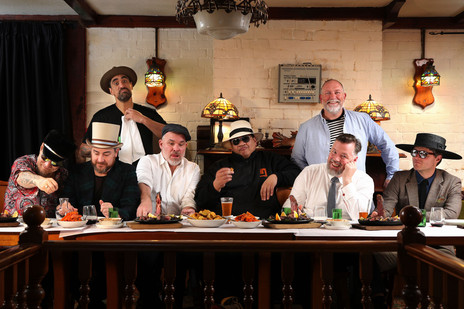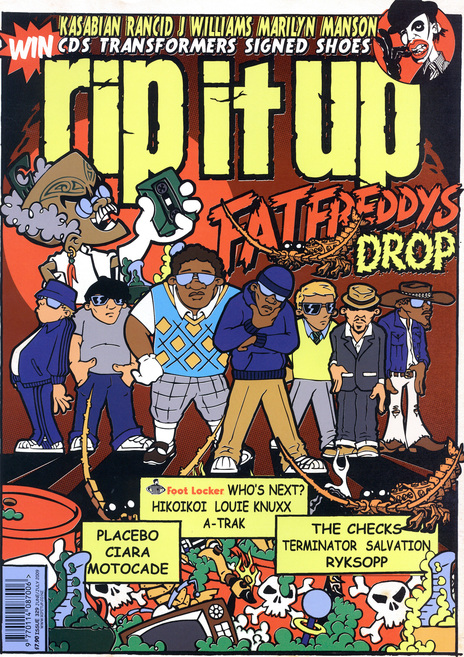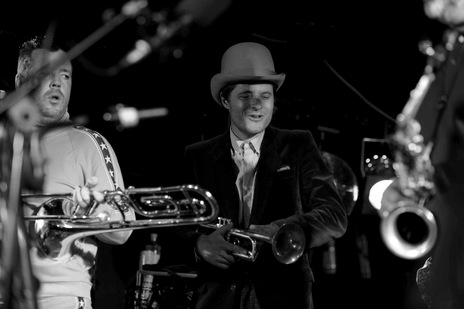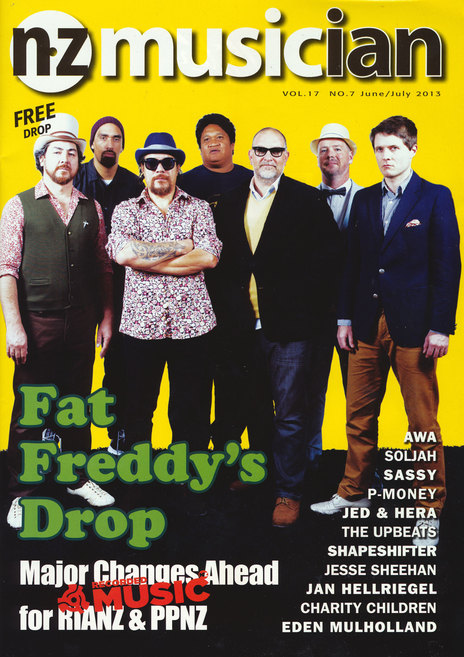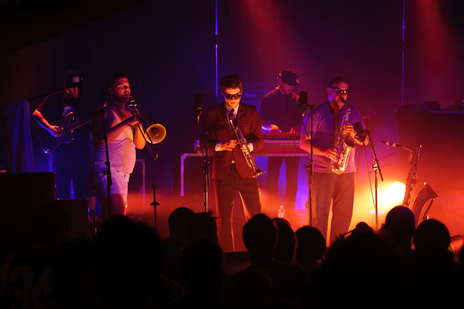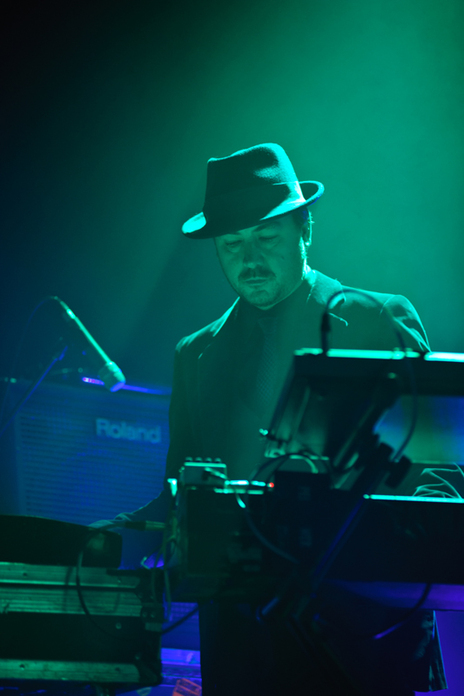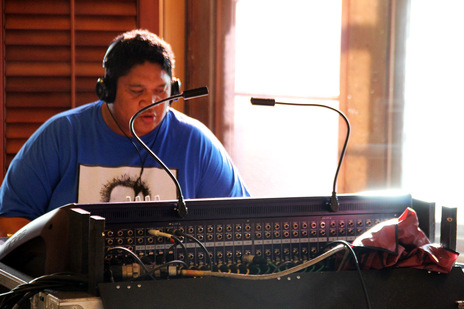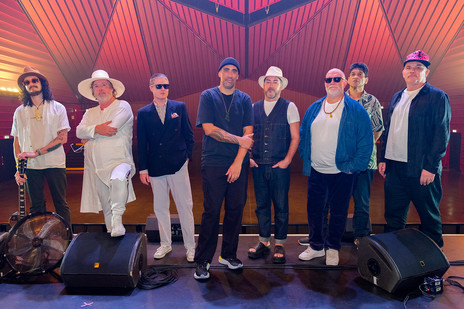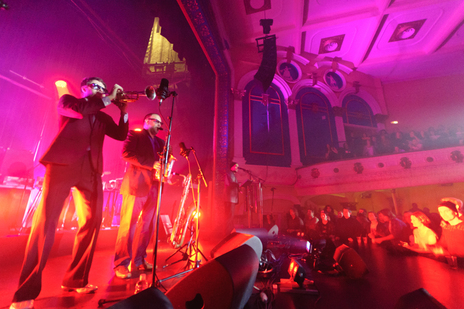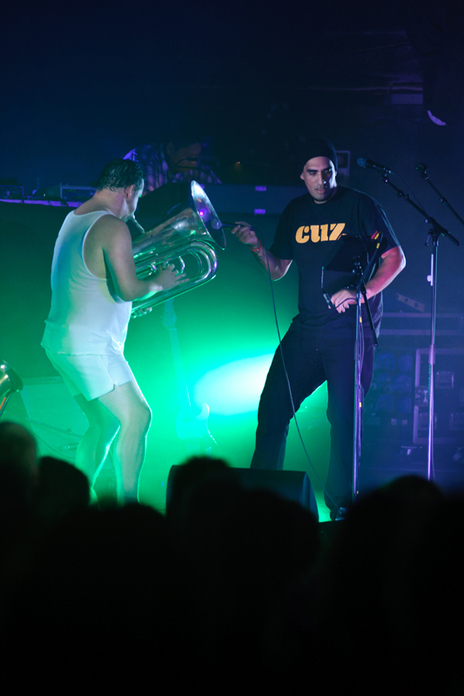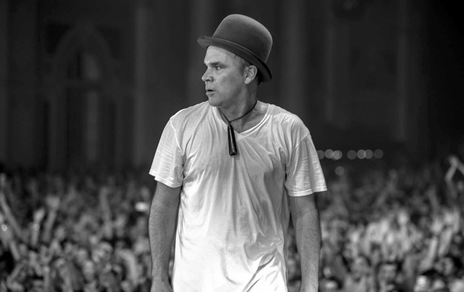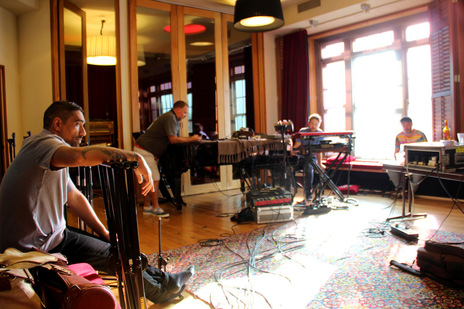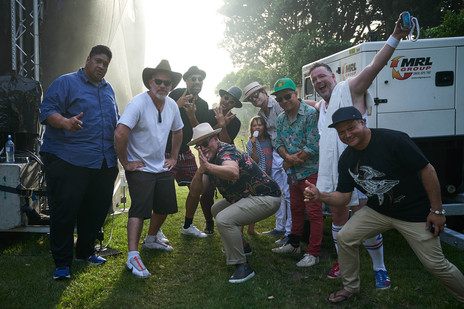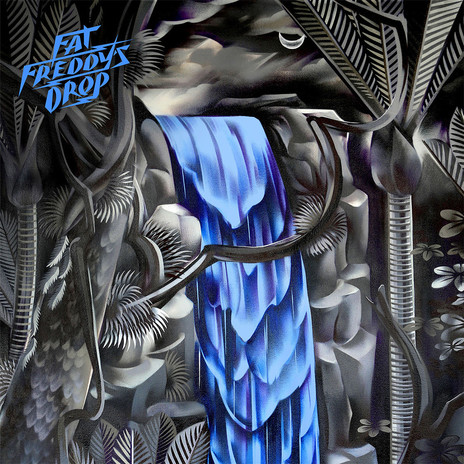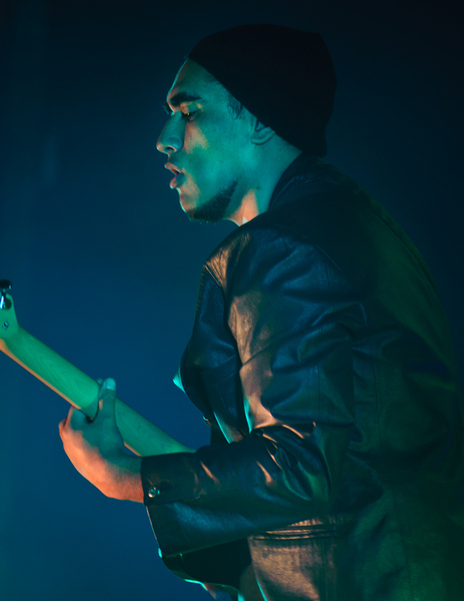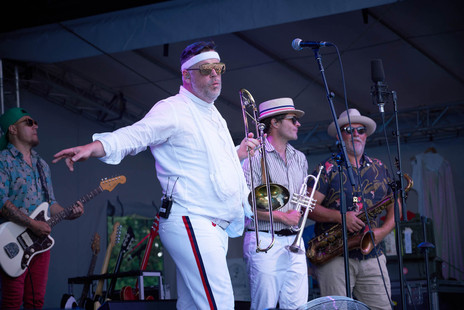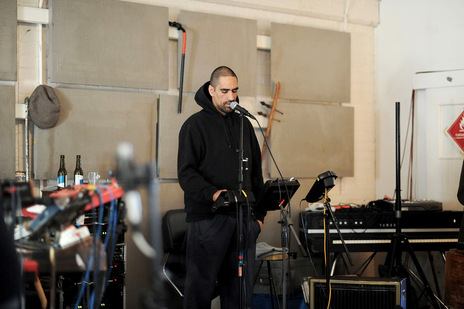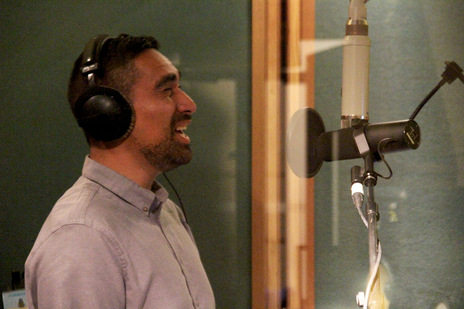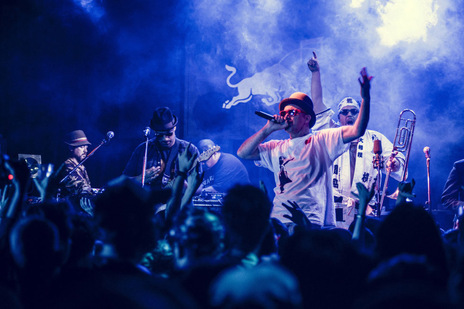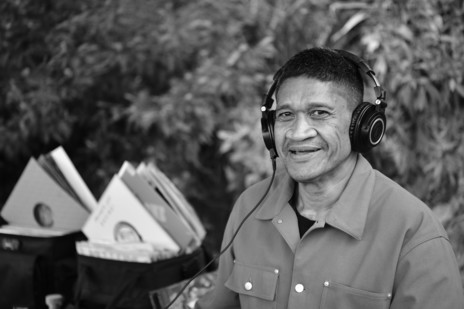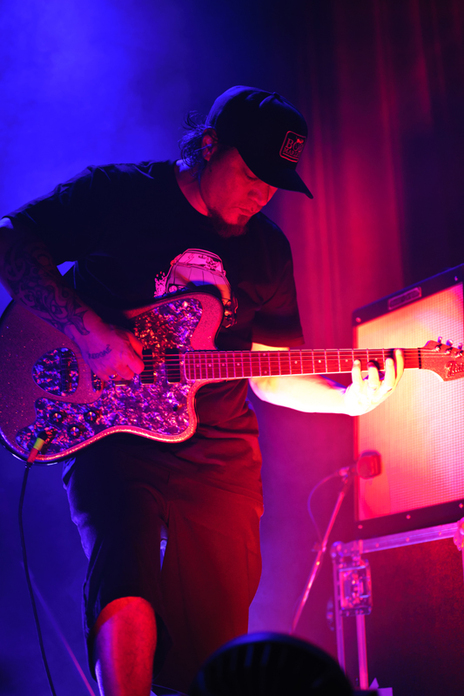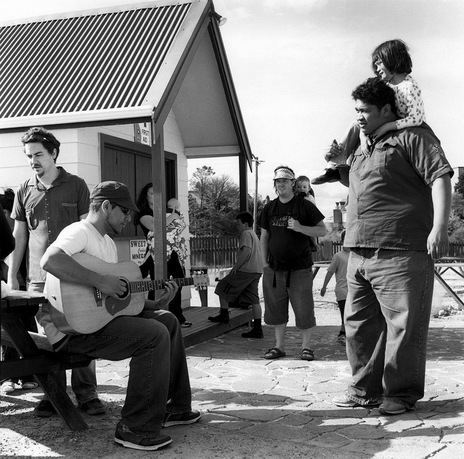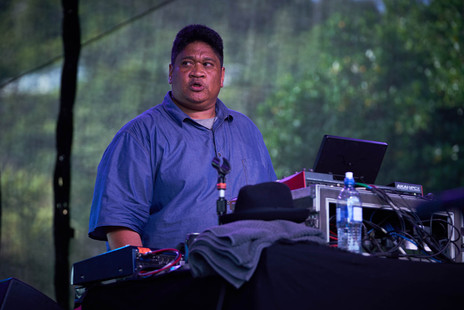Fat Freddy's - the jazz way
Fat Freddy’s Drop are first and foremost a live band, touring and playing festivals in Australasia and Europe, but their albums and singles have had massive commercial success, with the album Based on a True Story certified nine times platinum in New Zealand.
The Freddy’s show is built around Faiumu’s use of an Akai MPC sequencer/sampler, which he uses to arrange the band’s bass lines, beats and sound effects onstage, while Joe Dukie (Dallas Tamaira) provides vocals. Added to this is live trumpet, saxophone, trombone, tuba, guitar and keys from other members of the band. Extended jam sessions may become finished tracks for an album. They are famous for the fluid and freestyle element to their shows – where these "finished" tracks morph back again into extended improvised on-stage jams. This style of performing, paying homage to a tradition of live jazz improvisation, typifies Freddy’s stance both on and off stage. The band has forged a solid career on their own terms and at their own pace, independent of external record labels or band management.
Freddy’s in-house and collective operational model (the band divides songwriting credits and royalties evenly between all seven members) was typified with the 2005 release of the album Based on a True Story. The band declined all offers from major labels to release the album, opting to release the album independently on their own label, The Drop, with no paid marketing or promotion.
Beyond the Matterhorn
Saxophonist Chopper Readz (Scott Towers) – though not having yet replaced Fullah Flash (Warren Maxwell) at the time – remembers, “by then they’d developed a huge grassroots following through a combination of killer live shows throughout New Zealand, the release of the Live at the Matterhorn EP (which wasn’t formally promoted but sold 9,000 copies), and Matt Chicoine (Recloose) taking copies of their single ‘Midnight Marauders’ to tastemakers around Europe. The album came out, it was going along fine, being played by student radio, all those sort of alternative channels were there,” says Towers. “But then they killed it at the New Zealand Music Awards and it just went [makes explosion noise].”
At the 2005 NZ Music Awards, Fat Freddy’s Drop won every category in which they were nominated.
Despite ignoring industry practice and norms, Freddy’s were etched into the mainstream consciousness seemingly overnight. At the 2005 New Zealand Music Awards, Fat Freddy’s Drop won every category they were nominated in, including the not insignificant Best Group and Best Album awards. They were now occupying a fairly unique place as a band – combining strong underground credibility with widespread popular acclaim. Based on a True Story legitimised a sound and a scene that had been growing in Wellington for around a decade. There were enough pop hooks among the extraordinary techno, jazz, and dub-influenced musicianship for the album to appeal to a wide crossover audience. Towers says, “I remember Joe (Lindsay, trombonist, "Hopepa") telling me that after those awards they were in the car the next day and they changed the tuner and heard themselves on every single station they could locate [laughs] and it was like ‘we’re everywhere’, and they were, they were everywhere.”
Different music for different situations
Towers compares the New Zealand commercial success of the December 2005 hit single ‘Wandering Eye’ (No.6) to the more underground following the band has overseas: “Following the album getting released it was ‘Wandering Eye’ getting caned in New Zealand and Australia, whereas somewhere like Berlin or Paris it’s ‘Hope’ – different music has been the catch cry in different situations. What we do now is – ‘if we are doing a live set and we are playing songs off the record, what colours do we need to make a really kicking live set?’ We can change the combination of colours depending on the show, like say a local winery tour compared to a show in Berlin.”
Following the success of Based on a True Story, the Freddy’s collective made a decision to, as Towers puts it, “invest, like a business does, in the product.” He continues, “It was like, well there’s an interest in our music – how do we take this to the next level?” Having toured Europe prior to the album, and licensed their releases to Germany’s Sonar Kollektiv and the UK’s Kartel Creative (as well being championed by European tastemakers including DJ and broadcaster Gilles Peterson), the band embarked on a European tour that has provided a blueprint for their performance and touring model since then.
Fat Freddy's Drop took a calculated risk touring europe: The risk paid off.
Fat Freddy's Drop took a calculated risk, touring with its own sound and lighting engineer, and booking and headlining major venues across the continent. The risk paid off.
Towers continues, “the whole thing we wanted to do, and this relates back to the whole business and investment idea, is that, in order to be on those stages, in those rooms – and they’re big rooms and they’re full of shit-hot gear – you’ve got to be able to fill that room with your performance, and your production guys have got to be able to bring it ... that’s why we have a technical crew we use exclusively. But it means, you know, we get out on stage, and we’re totally comfortable, the sound is rocking because we’ve got our own engineer, and our lighting guy knows our songs inside out and backwards. Your performance stands up, because, it is different as a musical product, you know, there’s a certain level we consistently aspire to be on, where it’s a quality experience.”
Fat Freddy’s Drop have enjoyed success, both underground and mainstream in New Zealand, and now attract large crowds, both at festivals and their own headline gigs across Europe and Australasia. The band has released a string of singles, two live albums, and two studio albums: Based on a True story and the 2009 New Zealand No.1 (and double platinum) Dr Boondigga and the Big BW.
The third album Blackbird was released on June 21, 2013. It entered the New Zealand album charts at No.1.
In October 2014, Fat Freddy's Drop sold out London's O2 Academy.
The Drop way
Their operational model is a collective and an independent one, whereby all creative and business decisions are executed in-house.
Band manager Nicole Duckworth stated at the New Zealand Music Summit in 2011, “the reason we’ve been able to break all the rules and do things the way we want, is that this is an exceptional band. There is no other band like this in the world. No other band in the world sounds like Fat Freddy’s, and they are a band of an international musical calibre. When you have such a total uniqueness of sound, and you sound like no other band in the world, you can do whatever you want.”
--
The third album, Blackbird, was released on June 21, 2013, and it entered the New Zealand album charts at No.1. It was followed by three more Top 20 albums – Special Edition Part 1 (2019), Lock-In (2020, recorded at the Michael Fowler Centre), and an outdoor live recording, Wairunga (2021), which debuted five new tracks and re-worked two older tracks. Each new album garnered millions of streams, which was a reflection of the dedicated worldwide fanbase of the group.
In October 2014, Fat Freddy’s Drop sold out London’s O2 Academy. Their international tours continued over the following years, including two more back-to-back shows at the O2 Academy in 2018. Their activities were briefly interrupted by the Covid 19 pandemic of 2020-21, but they made up for it the following year, with an extensive overseas tour that took them across Australia, the UK, and Europe.
--
Fat Freddy’s 2003 tour of Europe was the subject of Marauders, a documentary series directed by Sarah Hunter, and released on Radio New Zealand's website in 2023. The first season can be viewed at RNZ.
--
The sixth studio album from Fat Freddy’s Drop, Slo Mo, took a few years to emerge. They were kept busy with touring and Dallas Tamaira took time out to explore his solo work with a six-song EP, Levels (2023), leaning into the soul side of his sound. Their fans were satisfied in the interim by a remix album created to celebrate the 10th anniversary of Blackbird. Blackbird Returns (2023) included work from top overseas producers such as the UK’s Nightmares On Wax and Germany’s Jazzanova, though it was the new version of ‘Blackbird’ featuring local rapper Kings that would prove to be the standout.
for their 2024 album ‘slo mo’ the band took a studio-focused approach
In the past, they had developed tracks by performing them live, but for their next album they took a studio-focused approach, even while aiming for energetic tracks that would keep a crowd moving. Interestingly, half the tracks featured live drums, though they were often just a couple of bars looped to create a beat. Notably, they brought in old friend Riki Gooch (aka Riki Pirihi) from TrinityRoots to play the rhythmical tom-based pattern on tripped-out track ‘Oldemos’, named for the “old demos” that spawned it. And over time, MC Slave aka Mark Williams had become an increasingly integral member of the group – his features on ‘Special Edition’ (from Special Edition, Pt 1) and ‘Bush Telegraph’ (from Wairunga) provided added punch. Williams returned to do similar work on ‘Next Stop’.
Slo Mo was initially released in October 2024 on double-vinyl LP with a stunning cover and gatefold-interior artwork by Daniel Tippet. Before its digital release a week later, the album raced to No.3 on the charts. The majority of their fanbase may now have been overseas, but clearly there was still plenty of love for Fat Freddy’s Drop at home in Aotearoa. (Updated by Gareth Shute, November 2024.)
--
In July 2025 the Fat Freddy’s Drop whānau and the band’s many fans mourned the death of band founder Chris “Mu” Faiumu. AudioCulture will be publishing a tribute to Mu soon. Meanwhile, among the many reactions to his passing are tributes by Nick Bollinger and Martyn Pepperell.
For two and half decades, writes Nick Bollinger for RNZ, Mu was Fat Freddy’s “producer and their pulse. Though neither a singer nor a soloist, his presence was intrinsic to the band. That’s not just because of the imposing figure he cut on stage as he hunched over his MPC sampler, but also because Fat Freddy’s songs were built on the musical foundations he put down.”
Martyn Pepperell writes on his Substack page: “Mu was a beacon. He was like a lighthouse, and his legacy always will be. For a long time, he was Wellington’s lighthouse, shining his light on good tunes, good laughs, and good times. People knew him from record stores, bars, gigs, studio sessions, Radio Active, social sports games, or even just a wave and a nod on Cuba Street or out Lyall Bay way ... for a long time, Mu was like a lighthouse in Wellington. Then he became a lighthouse around New Zealand and further afield across Australia and Europe. I like to imagine they erect a statue of him in Berlin or Barcelona. We should get onto doing that here first.”
